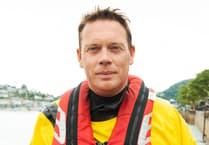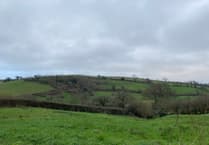A Devon-based wildlife charity is calling for action to control a fishing practice which is threatening thousands of local fish around the coast of the South Hams and Devon.
The family of fish known as Wrasse, are being removed from Devon’s coastlines in order to help ‘clean up’ Scottish salmon farms.
The fish are being transported alive to Scottish salmon farms where they are being used as a ‘natural’ control against parasites.
Devon Wildlife Trust is calling for a ban on the live capture of the fish from Devon’s Marine Protected Areas, places which have been recognised for the richness of their marine nature. In the South Hams, these marine protected areas include historic wreck sites at Prawle Point, parts of Salcombe Harbour, the Erme Estuary, and the coastline at Wembury.
The Trust is requesting people in Devon to voice their opposition by signing an on-line petition which asks for action to be taken by the county’s MPs.
Recently limited controls on Devon’s wrasse fishery have been implemented by the Inshore Fisheries and Conservation Authority (IFCA), but Devon Wildlife Trust believes that these do not go far enough. It points to a similar wrasse fishery which took place in 2015 in Dorset. This saw 57,000 of the fish taken during just one 18-week period in an area between Lulworth and Weymouth. Now the fear is that a similar operation is underway in Devon.
Devon Wildlife Trust is concerned about the impact this will have on local wrasse populations and the wider marine environment.
The charity’s Director of Conservation and Development, Peter Burgess said: “We’re calling for an immediate stop to the practice of removing live fish from Devon’s MPAs to satisfy the needs of Scottish fish farms.
He added: “This is a very destructive fishery. Mortality rates among the wrasse are often high - many of them do not survive the process of capture, storage and transportation they are put through.”
Peter continues: “Nobody yet knows what impacts wholescale removal of wrasse will have on our fragile marine reef ecosystems and the natural balance could be thrown into chaos. This could be devastating for not only the wrasse but habitats and species which depend on them for their survival.
“The recent moves by the Devon IFCA to partially control the fishery are an acknowledgement of the problem but don’t go nearly far enough to offering a solution. It’s vital that we exercise the precautionary principle and halt the capture and removal of wrasse from our most precious marine environments before long term damage is done.”
Devon Wildlife Trust has evidence that as many as 480 baited traps, known as pots, could be deployed around the county’s coastlines. There are currently no restrictions on where the pots can be placed. As wrasse live on rocky reefs close to shore this means that much of the fishing activity could take place within Devon’s most treasured and protected ‘in-shore’ marine environments, places which include Plymouth Sound Special Area of Conservation and Wembury Voluntary Marine Conservation Area.
Devon’s wrasse are being removed to meet demand from salmon fish farms in Scotland. Wrasse are used as ‘cleaner fish’ helping fish farms by feeding on the sea lice that infest captive salmon and which slow their growth. In the past chemical controls have been used against the lice. However, in recent years the lice have developed resistance to these chemicals and salmon producers have instead turned to the use of ‘natural’ controls in the shape of wrasse and other fish.
More details of Devon Wildlife Trust’s wrasse petition can be found at: www.devonwildlifetrust.org




